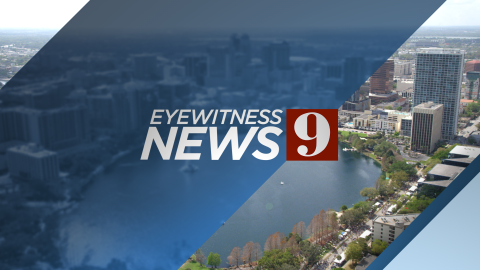Students who survived the Florida school shooting began a journey Tuesday to the Florida State Capitol to urge lawmakers to prevent another massacre, but within hours the gun-friendly Legislature had effectively halted any possibility of banning assault rifles like the one used in the attack.
State Sen. Lauren Book, D-Plantation, paid to have buses chartered from Parkland to Tallahassee Tuesday. Former Florida Democratic Party Chair Allison Tant raised money to pay for the travel of students who arrived Monday
The legislative action further energized the teens as they prepared to confront legislators who have quashed gun-control efforts for decades in a state where 1.3 million people have concealed carry permits.
"They're voting to have shootings continually happen. These people who voted down the bill haven't experienced what we did. I want to say to them, `It could be you,"' 16-year-old Noah Kaufman said as he made the 400-mile trip to Tallahassee.
Three buses carried 100 students who, in the aftermath of the attack that killed 17 people, want to revive the gun-control movement. The teens carried sleeping bags and pillows and hugged their parents as they departed, many wearing burgundy T-shirts in their school colors.
They spent the seven-hour ride checking their phones, watching videos and reading comments on social media about the shooting, some of which accused them of being liberal pawns.
Meanwhile at the Statehouse, a Democratic representative asked for a procedural move that would have allowed the Republican-controlled House to consider a ban on large-capacity magazines and assault rifles such as the AR-15 that was wielded by the suspect, Nickolas Cruz.
The bill had been assigned to three committees but was not scheduled for a hearing. The House quickly nixed the Democratic motion. The vote broke down along party lines, and Republicans criticized Democrats for forcing the vote.
Because the committees will not meet again before the legislative session ends March 9, the move essentially extinguishes hope that lawmakers would vote on any sweeping measures to restrict assault rifles, although other proposals could still be considered.
"No one in the world with the slightest little hint of a soul isn't moved by this tragedy," Republican strategist Rick Wilson said. "The discussion has to be a longer, bigger and broader discussion."
Lizzie Eaton, a junior at Marjory Stoneman Douglas High School, spent the day lobbying senators of both parties and concluded that lawmakers were "just not listening to us."
The vote was "heartbreaking," she said. "But we're not going to stop."
The students plan to hold a rally Wednesday to put more pressure on the Legislature.
Florida Gov. Rick Scott hosted a series of school safety workshops Tuesday in Tallahassee to focus on school emergency plans, expanding mental health services and preventing those with mental health issues from accessing guns.
School administrators and teachers attended an education workshop at the Florida Department of Education to discuss improving school safety and updating school security protocols and emergency plans.
A mental health and child welfare workshop was held at the Florida Department of Children and Families to discuss ways to expand mental health services and to improve coordination between state, local and private behavioral health partners.
A law enforcement workshop was held at the Florida Sheriffs Association to discuss potential safety improvements to gun laws and ways to prevent people with mental illness from accessing guns.
Those in attendance discussed the Baker Act, under which people with mental illness may be involuntarily committed for as many as 72 hours while a psychological evaluation is conducted.
Law enforcement officers are not allowed to confiscate guns from people who have been released following that evaluation, Walton County Sheriff Mike Adkinson said.
"There should be some sort of a cooling-off period, and there should be some sort of a mechanisms so that a person can't -- the next day -- go down to the local gun store and buy a gun," Pinellas County Sheriff Bob Gualtieri said. "Something needs to be done."
Others suggested extending the three-day waiting period for buying a gun and including mental health evaluations in background checks.
Orlando police Chief John Mina proposed that Florida adopt a gun violence restraining order, which would give police the authority to take away guns from people they believe are at risk for violent behavior.
The law has been adopted in five states and is being considered by 13 others, Mina said.
"We don't want to wait, so we’re in the process of passing a city ordinance for when these threats come across social media," he said. "(That way) if the threat is not imminent, we can still take action. I think that’s a loophole we all know about."
TALLAHASSEE, Fla. — The Associated Press contributed to this report.
%INLINE %%INLINE %
Cox Media Group




